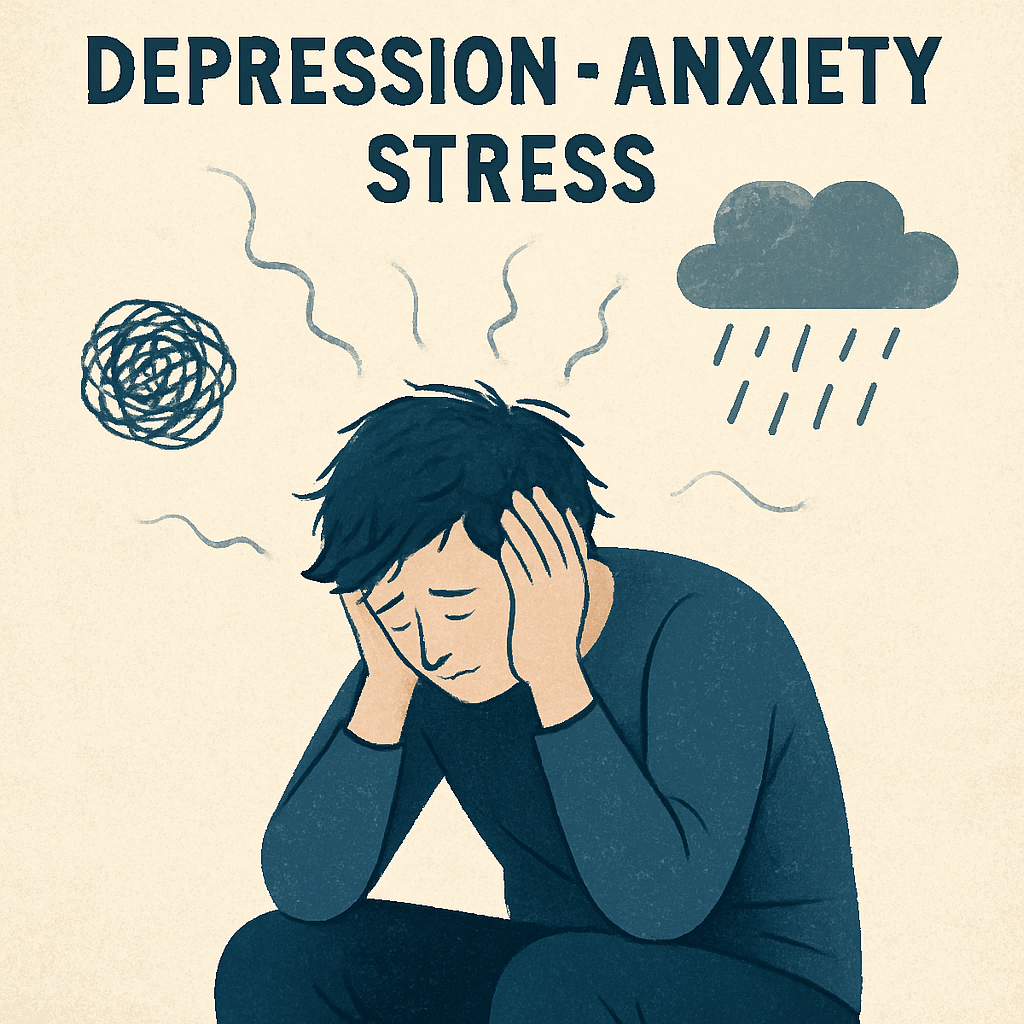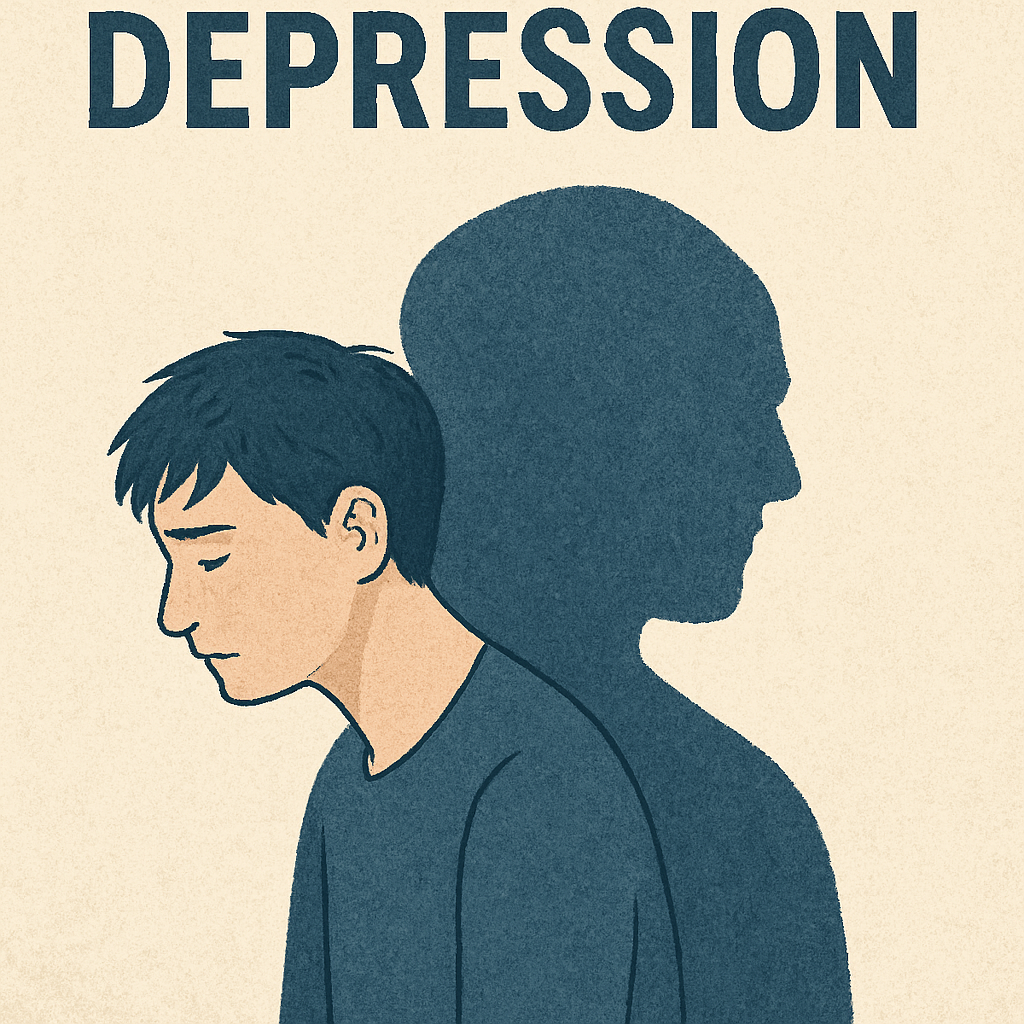In today’s fast-paced and highly demanding world, a multitude of individuals slog away with emotional and psychological distress in silence. Stress, anxiety, and depression are among the most common types of mental disorders, and depression can have profound impacts on daily life. However, they are often misunderstood, ignored, or minimized as mere mood swings. These disorders, especially depression, are largely misunderstood, yet identifying the signs early is crucial to providing support and intervention, ultimately helping individuals achieve better mental health.
This blog will discuss how to recognize certain signs and symptoms of stress, anxiety, and depression, specifically focusing on the differences and similarities these disorders share, along with what to do if you notice these signs of depression in yourself or someone you know.
Understanding how to cope with stress, anxiety, and depression is essential in today’s society where many face challenges related to depression.
Understanding the Basics
It is important to first understand what stress, anxiety, and depression are. Here are the definitions:
By learning more about depression, we can recognize its signs and symptoms, which can lead to better support for those affected by depression.
Understanding depression is essential for identifying its effects and addressing its challenges. Recognizing the symptoms of depression can lead to timely interventions.
What is Stress?
Stress is the body’s reaction to any demand or challenge. Stressors may be short-term (acute) or long-term (chronic). While short-term stress can propel someone into action, chronic stress can cause lasting damage to both mental and physical health.
What is Anxiety?
Anxiety produces disproportionate worry and fear about something, often lingering even when no actual threat exists. It motivates avoidance behavior and distorts daily life.
Addressing depression early can significantly improve quality of life for those suffering from this debilitating condition.
What is Depression?
Depression is a mood disorder characterized by prolonged sadness, feelings of hopelessness, and the inability to focus on anything other than these negative feelings. Symptoms of depression can manifest in various ways, affecting both mind and body.
Understanding the importance of recognizing the signs of depression can lead to more proactive approaches to mental health.

Recognizing the signs of depression is essential for timely support. Depression can lead to serious complications if left untreated.
Why It’s Important to Recognize the Signs
Recognizing the early signs of stress, anxiety, or depression can:
- Transform the condition from an insidious issue into something manageable
- Help you better cope with the symptoms
- Facilitate timely intervention
- Remove the stigma surrounding mental health
- Support your emotional and physical well-being
Unfortunately, many people disregard these signs as simply being “tired” or “having a bad week,” delaying help that could significantly improve their condition.
Recognizing depression in ourselves and others can foster more supportive environments where individuals feel safe to discuss their depression.
Symptoms of Stress
Stress affects everyone at some point, but chronic stress can be devastating.
Emotional Symptoms:
- Irritability or quick to anger
- Feeling overwhelmed or helpless
- Inability to relax; racing thoughts
- Frequent mood changes
- Increased irritability
Being aware of how stress, anxiety, and depression intertwine can help individuals recognize when they need assistance.
Physical Symptoms:
- Muscle tension or headaches
- Nausea or stomach upset
- Sleep disorders (either too much or too little)
- Exhaustion
- Chest pains or racing heartbeat
Behavioral Symptoms:
- Skipping meals or overeating
- Procrastinating or neglecting responsibilities
- Increased use of alcohol, smoking, or drugs
- Withdrawing from social activities
These early signs of stress indicate that something is out of balance. While stress is a natural reaction to pressure, chronic stress should not be ignored.
Signs of Anxiety
Anxiety disorders extend far beyond a temporary feeling of worry or fear. Symptoms can be intense and persistent, even without an obvious trigger.
Emotional Signs:
- Constant worry over minor issues
- Feeling tense, jittery, or “on edge”
- Fear that something bad is about to happen
- Difficulty concentrating or having a blank mind
- Feelings of dread
Physical Signs:
- Rapid heartbeat or palpitations
- Sweating or trembling
- Shortness of breath
- Dizziness or light-headedness
- Nausea or stomach disorders
Behavioral Signs:
- Avoiding feared situations or people
- Engaging in repetitive behaviors (e.g., checking, counting)
- Poor sleep due to racing thoughts
- Frequently seeking reassurance from others
Anxiety is often hiding in plain sight, masquerading as perfectionism, overthinking, or simply being “too careful.”
Signs of Depression
Depression affects every aspect of life. It can strike suddenly or develop slowly over time.
Emotional Signs:
- Persistent sadness or emptiness
- Loss of interest or pleasure in activities once enjoyed
- Feelings of guilt or worthlessness; feeling helpless
- Hopelessness about the future
- Thoughts of death or suicide
Physical Signs:
- Feeling tired or lacking energy
- Changes in appetite or weight
- Sleep disturbances (insomnia or oversleeping)
- Aches and pains without any apparent cause
- Slow speech or movements
Behavioral Signs:
- Ignoring personal hygiene
- Withdrawing from friends and family
- Poor performance at work or school
- Engaging in self-harming behaviors

When Symptoms Overlap
It’s common for individuals to experience a combination of stress, anxiety, and depression. Consider the following examples:
- Anxiety may appear before exams for a stressed student, and over time, the student might develop depressive symptoms, feeling as though they are constantly failing academically.
- A working professional suffering from chronic stress may develop anxiety and eventually progress to depression.
These conditions frequently coexist, which is why early detection and an integrated treatment plan are essential.
Mental Health Warning Signs to Never Ignore
There are certain warning signs that require immediate attention, including:
- Constant thoughts of death or suicidal ideation
- Sudden withdrawal from loved ones
- Unexplained weight loss or gain
- Substance misuse
- Self-harm tendencies
- Drastic mood or emotional changes
If you or someone you know is dealing with any of these signs, don’t hesitate to contact a mental health professional. Mental well-being is just as important as physical fitness and should be valued and cared for.
When and How to Seek Help
Burnout can cause individuals to avoid seeking help due to stigma, fear, or misunderstanding. However, asking for help is a sign of strength, not weakness. It is highly recommended to seek professional help when needed.
When to Seek Help:
- Suicidal thoughts or self-harming behavior
- Ongoing tiredness that doesn’t improve with rest
- Difficulty fulfilling daily responsibilities for more than two weeks
- Losing interest in previously enjoyed activities
- Relationships with family, friends, and colleagues becoming strained
How to Seek Help:
- Talk to someone you trust – a friend, family member, teacher, or mentor
- Consult a mental health professional – a psychologist, psychiatrist, or counselor
- Call a helpline – in emergencies or if you need immediate guidance
- Join a support group – online or in-person communities can be helpful
Preventive Strategies for Mental Health Self-Checkup
Taking care of your mental health is just as important as seeking external help. Here are some self-care strategies:
- Journaling
Writing in a journal can help you reflect on your feelings and track your emotions. - Scheduling Yourself
Organizing your day can help manage anxiety and reduce stress. - Social Media Detox
Reducing time spent on social media can improve self-esteem and lower anxiety. - Mindfulness
Practices like meditation, yoga, and breathing exercises help enhance relaxation. - Physical Exercise
Regular physical activity reduces stress and releases endorphins, which improve mood. - Sound Sleep
A good night’s sleep (7-9 hours) helps regulate emotional well-being. - Socialization
Sharing problems with friends and family can lighten your emotional burden.
Conclusion
Identifying the signs of stress, anxiety, or depression is the crucial first step in managing and improving mental health. These conditions are not just fleeting moments of feeling down or overwhelmed; they can significantly affect every part of one’s life. While the journey to healing may seem long or daunting, recognizing these signs early can make a world of difference. The sooner we acknowledge what we’re going through, the sooner we can take steps to regain control, improve our well-being, and prevent these emotions from spiraling into something more difficult to manage.
It’s also important to remember that mental health struggles are not a sign of weakness or failure. Everyone, no matter how strong or resilient they seem, can face challenges with their emotional well-being. It’s okay to not be okay sometimes, and it’s even more okay to ask for help. Talking about mental health has become more normalized, but there’s still a lot of work to be done in removing the stigma that surrounds it. By sharing our struggles and supporting each other, we take away the shame and isolation that often accompany mental health challenges.
If you or someone you care about is showing signs of stress, anxiety, or depression, don’t wait for it to get worse. Reach out. Whether it’s talking to a friend, family member, or a professional, taking that first step toward seeking help is often the hardest but the most rewarding. The road to recovery may have its ups and downs, but healing is always possible. Your mental health matters just as much as your physical health, and both deserve your attention and care. You are not alone in this journey.
Remember, the hardest part is starting, but once you do, you’re already on your way to a better tomorrow.
For more blogs go here.
